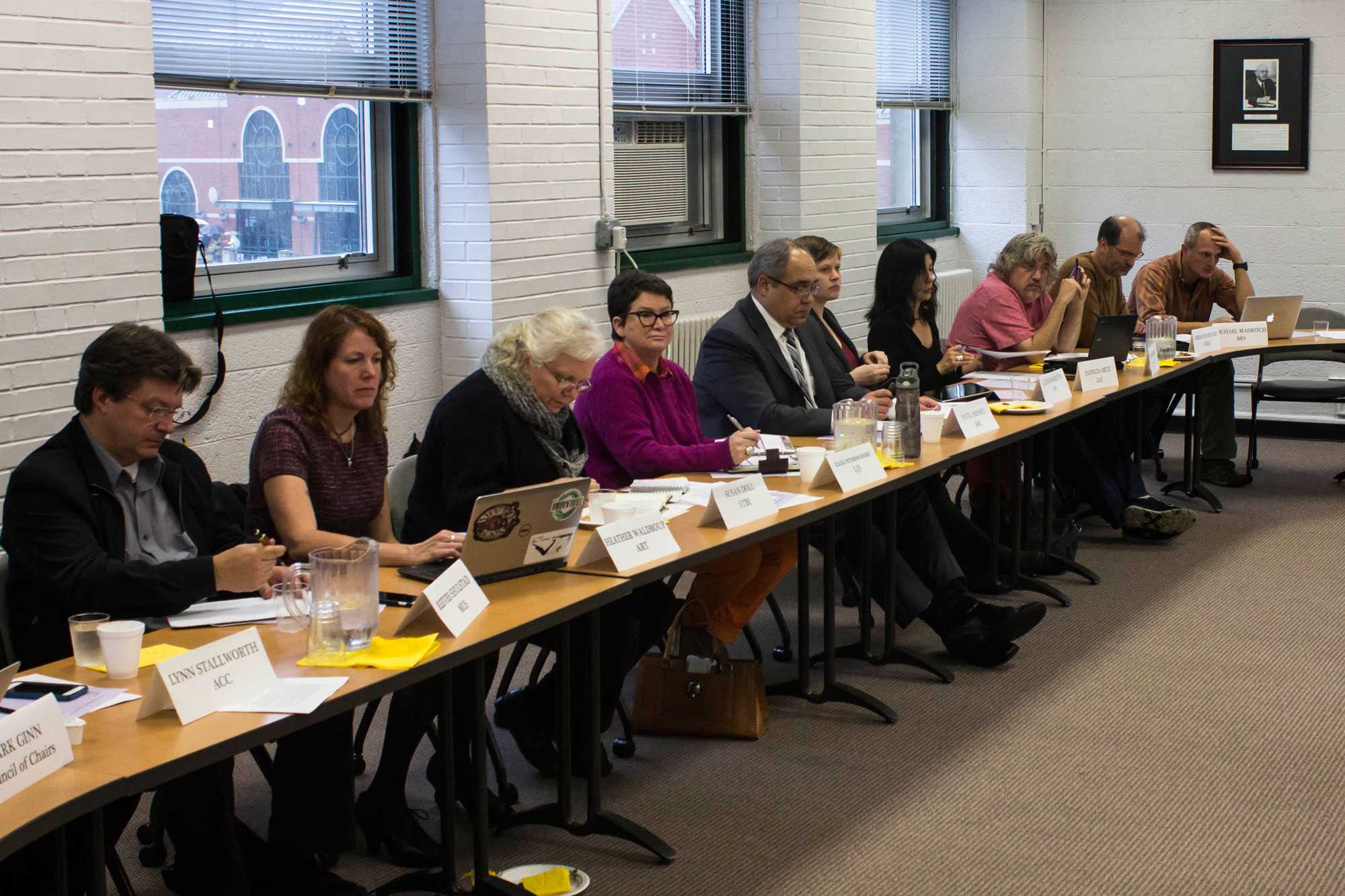When the Honors College at Appalachian State University made the transition from program to college in 2006, it expected to see numerous changes aside from just a title change.
A group of six students gathered on Nov. 9, 2015 at I.G. Greer during the faculty senate meeting to voice their stance on why the Honors College at Appalachian deserves to attain full college-level status. Others attended in support of the resolution.
In the end, a unanimous vote during the meeting was made in support of the Honors College receiving full college-level status.
There are currently 650 Honors students and the number is expected to rise to 700 by the end of the semester. The issue is that the Honors College currently acts more like an Honors Program than an actual college. It lacks a titled dean, a college-sized budget and representation on college-level committees.
Of the 15 higher education institutions in North Carolina, there are seven with an Honors College. Only four out of the seven — East Carolina University, Western Carolina University, the University of North Carolina at Pembroke and the University of North Carolina at Greensboro — have a titled dean and representation on their campuses as full colleges, said Leslie Jones, director of the Honors College at Appalachian.
During the meeting there were various concerns as to why the necessary changes had not yet been made for the Honors College at Appalachian, as well as concern about the necessary increase in funding that would have to be made to give the Honors College at Appalachian full college-level status.
The resolution was presented by Michael Behrent, associate professor in the history department. In the past year, Behrent also taught four classes within the Honors College.
He said giving the Honors College full college-level status is worth doing because it honors a decision that was made around nine years ago.
“We have decided to no longer call our Honors Program an Honors Program but an Honors College, but not to do the things that having an Honors College requires,” Behrent said. “In a sense it’s like moving onto the Sun Belt Conference and making all the financial and other changes that are required. As far as I know, we haven’t initially had difficulty making that decision.”
In addition, full college-level status would help the university increase the number of students with required international education and it would attract more academically strong students, including those from diverse backgrounds which is in line with the university’s initiative on diversity.
On Nov. 2, a survey was conducted to provide evidence of the extent of the issues among the Honors student body. Of 650 Honors students, 261 submitted responses before the faculty senate meeting.
Of 261 student responses, 71.65 percent said getting accepted into the Honors College at Appalachian influenced their decision to attend. In addition, some students attending the faculty senate meeting mentioned that they have declined opportunities to attend prestigious universities due to the Honors College.
One of these students is Michael Tucker, junior applied physics major with a concentration in astrophysics in the Honors College who turned down the University of North Carolina at Chapel Hill.
This summer, Tucker participated in an internship at the Space Telescope Science Institute, a subset of NASA that acts like the data hub for all the space telescopes that have been sent into orbit by the U.S.
“The Honors College directly helped me get the internship over 300 other applicants,” Tucker said. “[Recruiters] see Honors College next to my name and they know that I can show up and I can produce work.”
As a result of his research through the internship, he is now involved in writing a scientific paper with the help of a mentor that will be presented in January at a conference in Orlando, Florida.
Nicholas Gilliam, a junior accounting major in the Honors College also serving as a representative in the Student Government Association, said full college-level status would require a funding increase of $55,000. Although the Honors College is larger than other colleges across campus, it does not receive as much funding.
“We know that money doesn’t just come from nowhere, but we also look at things like student fees increasing every year,” Gilliam said. “We just went into the Sun Belt Conference and Chancellor Everts is looking at a solid raise right now. If it really is a resource issue then why are resources being put in other places?”
The budget without full college-level status limits the opportunity to support students through scholarships, research grants, funding for international education and graduate exams, and more. This also fails the expectations that are set when students decide to apply for the Honors College.
Although there are concerns about increasing the funding for the Honors College, it is still in the process of being worked out.
Story by Chamian Cruz, News Reporter

